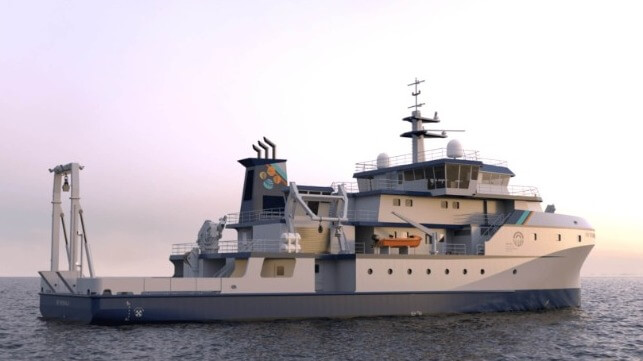Saudi Arabia Orders its First Deep Sea-Capable Research Vessel

Saudi Arabia’s King Abdulla University of Science and Technology (KAUST) has tapped the Spanish shipyard Freire to build its new research vessel, RV Thuwall II. The new ship will deliver in 2026.
Glosten-designed RV Thuwal II will be the flagship of the Saudi research vessel fleet and will serve all marine research interests of the nation, including use by government ministries. In addition, it will be the first regional class research vessel for Saudi Arabia, enabling access to the Red Sea, as well as research expeditions in coastal waters and the deep sea.
Since 2009, KAUST’s Red Sea Research Center (RSRC) has been carrying out extensive studies to understand the Red Sea’s ecology. RSRC’s research has shown that corals in the northern Red Sea could have acquired high-temperature tolerance, making them resistant to bleaching up to a certain extent in warming seas. The acquisition of the research vessel will boost KAUST’s capacity to study these coral reefs, as well as help attract more international partners.
RV Thuwal II will be 50 meters long, 12.8 m in width and will have a draft of 3.6 m. It will be designed for a 30-year lifespan, with its modular design allowing for multiple types of experimental laboratories to serve existing and future marine technology for Red Sea exploration. Further, this modularity allows for retrofitting of new green propulsion technologies to lower the vessel’s carbon footprint over the years. The vessel will have capacity for 30 people, 12 of whom will be crew.

that matters most
Get the latest maritime news delivered to your inbox daily.
Besides its primary function, RV Thuwal II will also be able to support national responses to emergencies such as oil spills and marine accidents.
“RV Thuwal II symbolizes KAUST’s commitment to enhancing Saudi Arabia’s research infrastructure and the exploration of the Red Sea. The ship will be accessible to partners with a shared interest in understanding the Red Sea and unlocking its vast potential,” said KAUST Vice President of Research Pierre Magistretti.
